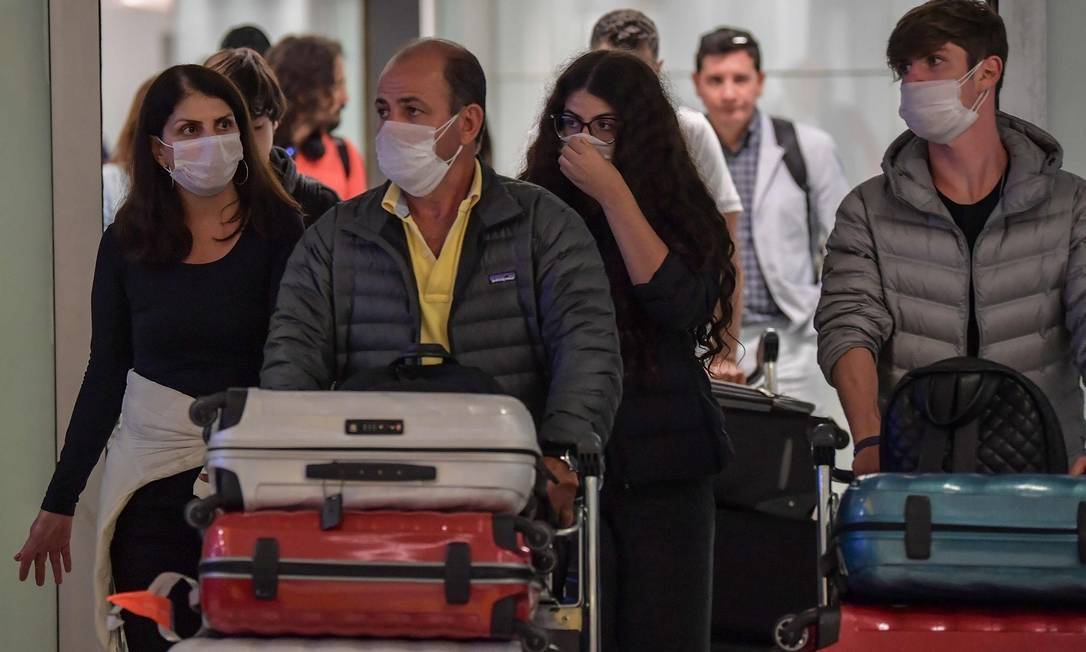RIO DE JANEIRO, BRAZIL – The new safety measures to prevent coronavirus contagion should require passengers to arrive earlier at airports, accouding to IATA, the international association of air transport.

Nick Careen, IATA’s vice president of Security, who introduced the association’s recommendations, said it is still assessing how much extra time will be required for all safety measures to be met and how much advance time is required for passengers.
The recommendations are in line with measures already implemented by airlines or suggested by other organizations, such as reducing contact, limitations on in-flight baggage, changes to meal systems, wearing masks, and regular disinfection.
IATA also recommends the adoption of additional technology so that procedures such as check-in, luggage clearance, document checking, and security inspections are performed without contact and preferably by biometrics and without the need to touch surfaces.
Careen said some of the measures could be replaced in the future by tests for the presence of coronavirus or electronic immunity passports, but only if scientific progress is achieved in these areas.
According to IATA’s executive, each country will determine the measures to be adopted if a passenger is found to be infected by the coronavirus during a flight – such as quarantine or repatriation, for instance.
Testing and tracking contacts are critical for travel to be resumed more rapidly and safely, Careen said, and companies are now banning passengers from changing seats on the plane to avoid hindering identification if any case is detected.
The vice president said IATA is discussing its recommendations with the International Civil Aviation Organization (ICAO), but that regulatory changes made in the past, such as in the transportation of animals or medicines, have been implemented easily by airlines.
As is currently the case with luggage, self-declaration about one’s health can be a way of preventing passengers from endangering other people’s health and relieving airlines of liability for both exposure and repatriation costs.
According to IATA’s General Director, Alexandre de Juniac, passengers should not be constrained in the process, and the costs will be shared among different companies in the market, such as airports, logistics companies, and airlines.
Below are the suggested measures:
BEFORE THE FLIGHT
- online reservation
- online check-in
AT THE BOARDING TERMINAL
- staff and passenger access only
- temperature checks at or as close to the entrance as possible
- social distancing of at least two meters at all points, with restructuring to prevent queues when necessary
- mandatory wearing of masks and other protective equipment for passengers and staff
- available disinfection points and frequent information on the need for disinfection
- when there is sufficient scientific evidence, Covid-19 tests and electronic immunity passports may replace part of the measures
INSIDE AIRPORTS
- self-service as much as possible, using biometrics and without the need to touch surfaces
- whenever possible, passengers should check their luggage
BOARDING
- boarding arrangements to allow less contact
- use of digital boarding pass readers and biometrics to avoid contact
- limitation of on-board luggage to expedite boarding
ON FLIGHT
- aircraft must use Hepa type filters to ensure air disinfection
- use of masks and other protective equipment for flight attendants and passengers
- supply of disinfectant products
- measures to avoid the transit of flight attendants to serve meals, such as pre-delivery of food packages
DESTINATION AIRPORT
- temperature control by trained professionals on how to guide suspected cases
- clear guidance for passengers on what to do when they land
- expedite luggage delivery, using all available conveyor belts
- minimize contact and keep distance in immigration and customs inspections
- use of electronic statements, digital forms, and QR codes
CONNECTIONS
- temperature check
- preferably concentrate security procedures at boarding airports to avoid contact and
- duplication of tasks
- when re-checking is required, take the measures as mentioned above to prevent contact
Source: Folhapress

